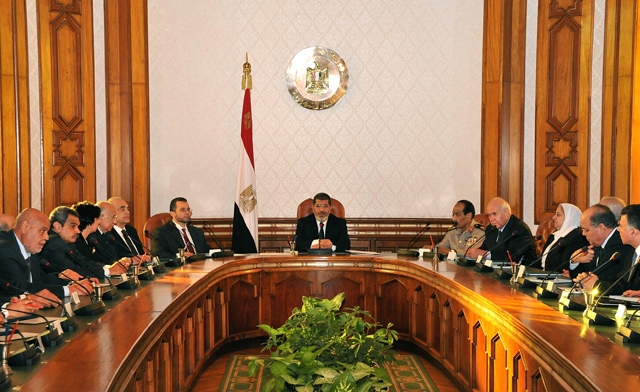SANAA: Heavy gunfire was heard south of the Yemen capital on Monday and soldiers deployed in force in Sanaa itself, with a new wave of rallies reported across the country demanding that President Ali Abdullah Saleh quit.
The impoverished Arabian Peninsula state has been shaken by weeks of protests that have undermined Saleh’s 32-year grip on power, with the president appearing increasingly willing to deal more violently with his many opponents.
Seven demonstrators have died in clashes since Saturday, raising the death toll from the unrest to above 30.
"There’s heavy gunfire here, we can’t tell about casualties yet," activist Bushra Al-Maqtari told Reuters by telephone from Taiz, which is 200 km (125 miles) south of Sanaa and one of the biggest sites of anti-Saleh rallies.
The United States, which has long seen Saleh as a bulwark against a dynamic al Qaeda network in Yemen, has condemned the bloodshed and backed the right for peaceful protest.
In the capital Sanaa, armed soldiers and armoured vehicles tried to surround and cut off an area where around 20,000 anti-government supporters have been camped out for weeks.
"We’re expecting an attack at any minute, but we’re not leaving until the regime falls, " said protester Taha Qayed.
Crowds chanted: "Leave, leave you murderer."
A string of Saleh’s allies have recently defected to the protesters, who are frustrated by rampant corruption and soaring unemployment in Yemen, where 40 percent of the population live on $2 a day or less and a third face chronic hunger.
In the south, thousands were protesting in Al-Hawta, the regional capital of Lahej province, residents said.
"Al-Hawta is in a state of paralysis. The opposition has called for a general strike to protest at the repression of demonstrators," a resident told Reuters by phone.
He said all the markets were shuttered and that security forces were spread out around the city.
More than 10,000 people were also protesting in the flashpoint southern province of Dalea, where police have often clashed with armed secessionist groups, locals said.
Popular revolts in Egypt and Tunisia have inspired this latest wave of unrest in Yemen, but the country was already seething with rebellions in the north and south.
Saleh has made many verbal concessions to the protesters, promising to step down in 2013 and offering a new constitution giving more powers to parliament, but he has steadfastly refused his critics’ main demand that he leave office immediately.
Additional reporting by Mohammed Mukhashaf.


